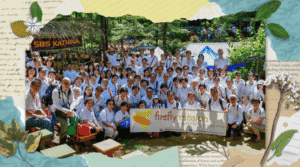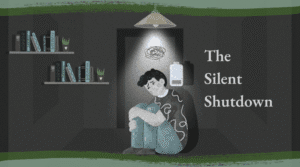This teaching is extracted from the Q&A section of a lecture by Sis Sylvia Bay at Buddhist Fellowship Singapore: https://www.youtube.com/watch?v=SWfoq…. The following is a transcript of the above video with edits.
Transcript
We typically react to our perception of the world in a certain habit and a certain way.
In what way do we perceive the world as?
- “We will never die tonight; we will wake up tomorrow.” That (problematic) assumption will colour the way we see the world and our relationships. This alone would automatically imply a second problem.
- “Pleasure is a good thing. We should have pleasure. We are entitled to pleasure.”. This gives rise to the third problem.
- “There is an ‘I’, there is a permanent ‘I’ beyond what I am experiencing right now.”.
This is conventional reality.
Even though you may think you understand (the above), it doesn’t mean that when you are reacting to the world or engaging the world, that baseline and the lens (you see the world with) are any different. If the lens is any different, you would not react (when someone talks bad about you). You would just let it pass and go. Even if there is an unpleasant feeling that arises, it’s a feeling that is transient. It will change.
When you are very aware of mortality and when you live with full awareness that death can be any moment, can you imagine how your life will change? And it doesn’t have to be your life. If you’re living with someone who’s going through that, your life will change too!
You may think that this is an awful life to live.
Indeed, it is a very Dukkha way to live. The Buddha taught that once we see impermanence, we will understand Dukkha*.
Nature is such that we all die. Why is that more Dukkha? Because, then, we can no longer hide behind delusion; we cannot hide behind the assumption that “no worries, death won’t come knocking until much later. So, in the meantime, let’s just enjoy. This is our entitlement.”. We can no longer have this kind of delusion.
So, Ultimate Reality is living without the distortion of the regular mind.
You have to do a lot of work and very seriously and very conscientiously to be able to shift that lens such that the mind no longer operates in the delusion but instead has the clarity and assumption that the next breath may be your last.
When your mind lens shifts in that way, the way you treat people, the way you react to things that happen outside you would change. Your priorities in life would change. What you perceive to be essential and critical definitely would change. If you know that you have only one year (to live), you are not going to spend your time doing those things that waste time. You will do what is necessary.
That is realising ultimate reality.
*Dukkha is a Pali word that means dissatisfaction/pain/suffering/stress.
Wise steps:
- When external circumstances give rise to unpleasant feelings, pause to contemplate on the impermanent nature of life.
- Frequently remind oneself that death might come anytime in order to create a sense of urgency to make the best use of the time we have while alive.
Heedfulness if the path to the deathless, heedlessness is the path to death.
Dhammapada Verse 21
The heedful do not die, the heedless are like the dead.




